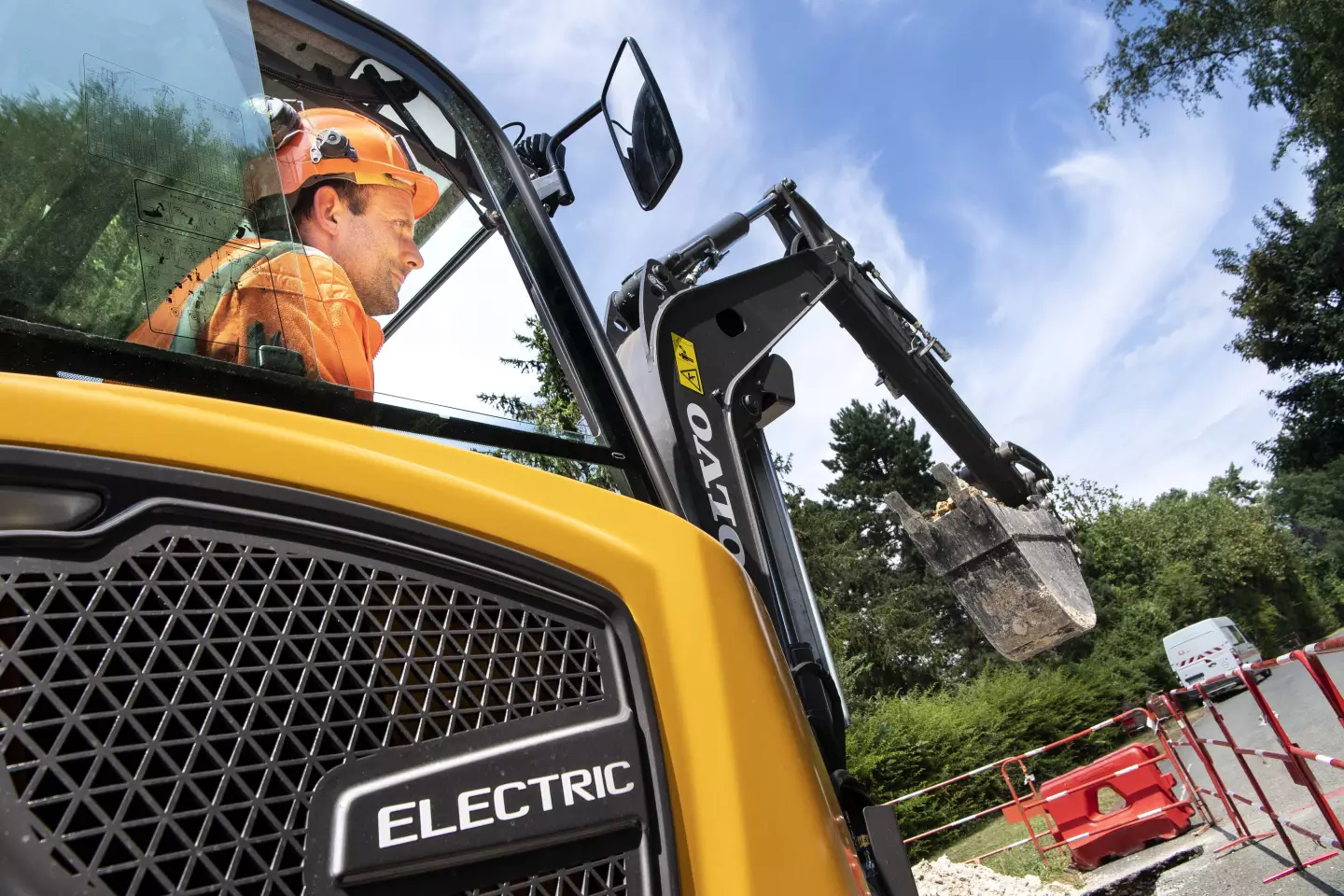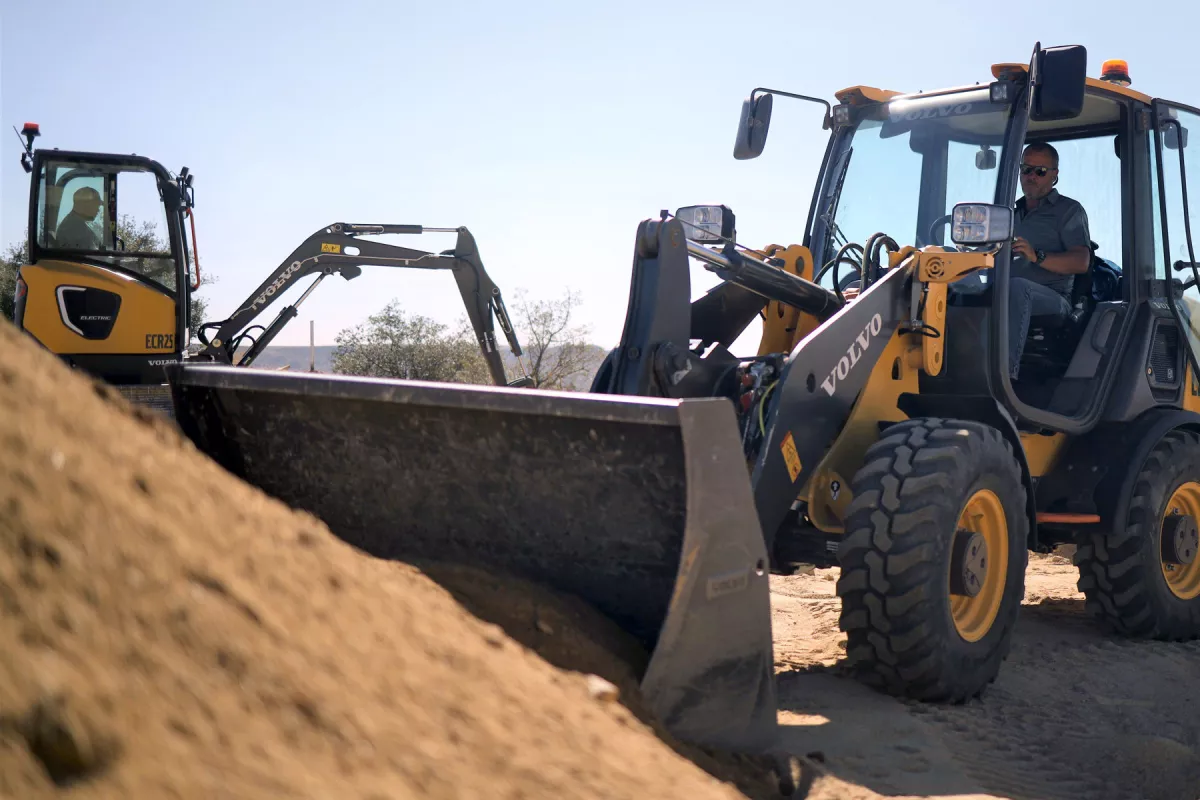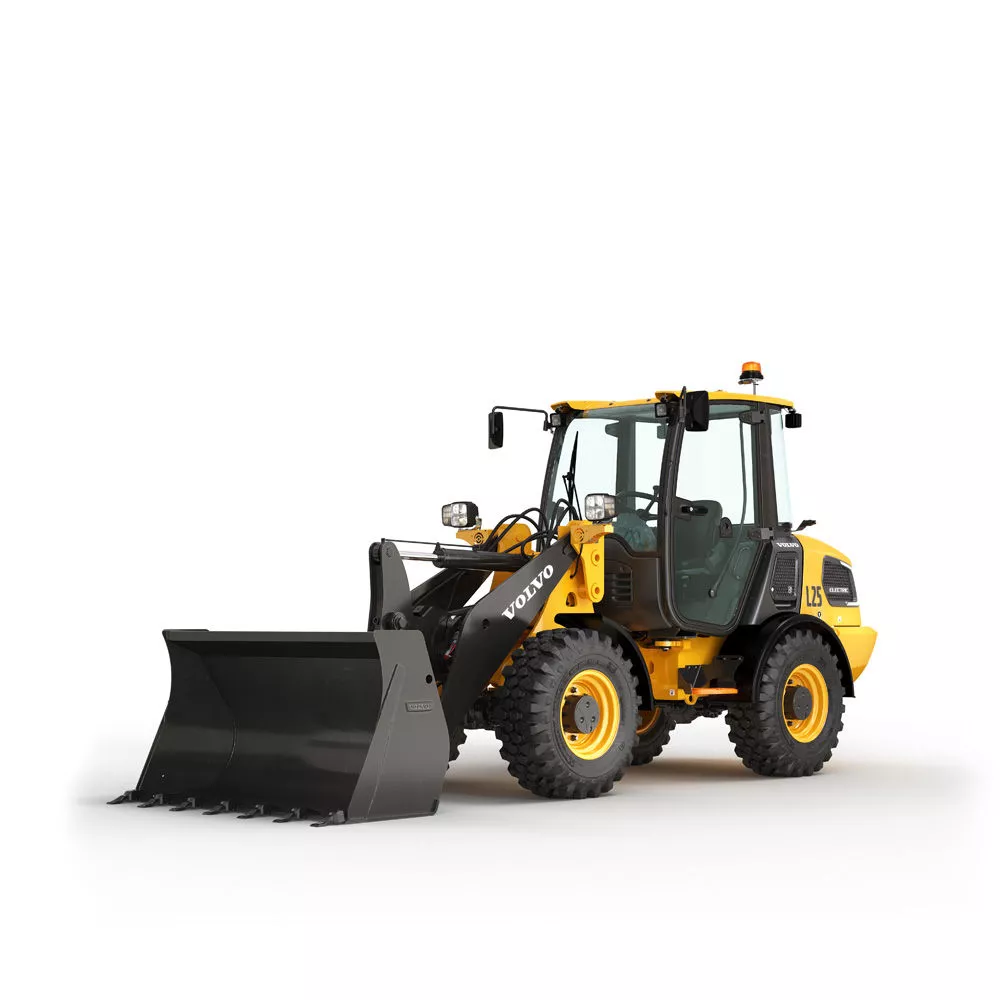Volvo CE has been eyeing the replacement of diesel-belching heavy machinery with battery-electric models for a number of years, previously testing vehicles in Sweden and Paris. For the last year or so, the company has been field testing in Southern California, and is now reporting that the ECR25 Electric compact excavator and L25 Electric compact wheel loader will go on sale in North America from next year.
Volvo Construction Equipment says that pilot testing of the ECR25 Electric and the L25 Electric on a number of sites across Southern California – which was funded by a grant from the Environmental Protection Agency (EPA) – has validated performance expectations and demonstrated "significant benefits when compared to diesel machine in the same class."
"The California pilot project supports what we’ve seen on jobsites in Europe and elsewhere: our battery-electric compact excavator and compact wheel loader are viable alternatives to diesel equipment for construction fleets that want to reduce their carbon footprints," said Volvo CE's president, Melker Jernberg. "Climate change is the biggest challenge of our time, we all have an important role to act, and by working together and collaborating we can reduce the amount of harmful emissions that are entering the atmosphere."
The 6,102-lb (2,768-kg) ECR25 Electric's 24-hp motor sees it trundle around a construction site at up to 2.8 mph (4.5 km/h), while its 20-kWh battery pack gives it a per-charge run time of up to four hours. A full charge over 230 V AC (16 A) takes around five hours, but fast-charging over 400 V AC (32 A) can get the batteries up to 80 percent in about 50 minutes. Other key specs include a tear-out force of 3,372-3,993 pound-force, it can dig down to a depth of just over 9 ft (2.76 m), and then dump from a height of 9.7 ft (2.95 m).
The L25 Electric moves at up to 10 mph (16 km/h) thanks to a 48-hp (36-kW) motor, with a 43-hp (32-kW) motor working the hydraulics for lifting the bucket. Its 39-kWh battery pack is reckoned good for up to eight hours before needing a top-up, which will take 12 hours over 230 V AC (16 A). Standard bucket capacity is almost 32 cubic feet (0.9 m3), breakout force is reported to be 12,252 pound-force, and tipping load is 7,275 lb (3,300 kg).

The big take-aways from the Californian pilot projects are that the electric construction vehicles matched the work performance of their diesel counterparts, but operators noted a drop in maintenance needs.
"Over the three months we tested, these machines performed exceptionally – matching what we would expect from a diesel machine of equal size but with no emissions," said Jacques Marais of Baltic Sands. "We are excited to be one of the early adopters in applying electric equipment to our business and I have a sincere belief that this is the future."
During the 400 hours of operation across all sites, it's estimated that – compared to running diesel machines – some six metric tons of carbon dioxide didn't make its way into the atmosphere, and a saving of about 560 gallons of fuel was also made (at an estimated cost of US$2,400).
Both vehicles were found to offer quieter operation too, with exterior noise levels for the excavator reported to be 9 dB lower when compared to diesel machines ("which represents a 90 percent decrease in sound power"), and the wheel loader performing similarly. This not only reduces overall noise pollution, allowing for operation in sound-sensitive areas, but makes communicating with other crew members onsite easier.
Though the vehicles had to be adapted for compatibility with the US power grid, the higher current (compared to Europe) was actually found to benefit the charging process, with one jobsite even installing a solar array to help top up the lithium-ion batteries.
Though Volvo CE is still going through the data from the various pilots ahead of submitting full reports to the EPA and South Coast AQMD, the company has opened up the pre-order books for the ECR25 Electric and L25 Electric, with delivery to the first customers expected to start in early 2022.
Source: Volvo CE






